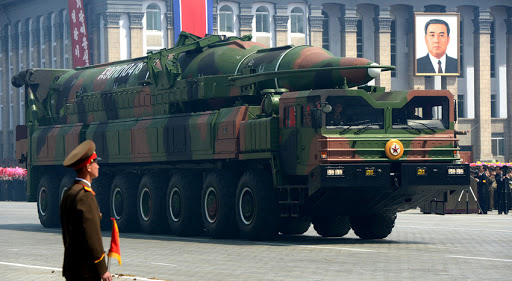The news this Tuesday should give all of us pause—and reason to pray. It should also draw us to reflect more deeply on the Church’s teaching regarding the waging of war.
From thecatechism:
2302 By recalling the commandment, “You shall not kill,”our Lord asked for peace of heart and denounced murderous anger and hatred as immoral. 2303 Anger is a desire for revenge. “To desire vengeance in order to do evil to someone who should be punished is illicit,” but it is praiseworthy to impose restitution “to correct vices and maintain justice.” If anger reaches the point of a deliberate desire to kill or seriously wound a neighbor, it is gravely against charity; it is a mortal sin. The Lord says, “Everyone who is angry with his brother shall be liable to judgment.”Deliberate hatred is contrary to charity. Hatred of the neighbor is a sin when one deliberately wishes him evil. Hatred of the neighbor is a grave sin when one deliberately desires him grave harm. “But I say to you, Love your enemies and pray for those who persecute you, so that you may be sons of your Father who is in heaven.” 2304 Respect for and development of human life require peace. Peace is not merely the absence of war, and it is not limited to maintaining a balance of powers between adversaries. Peace cannot be attained on earth without safeguarding the goods of persons, free communication among men, respect for the dignity of persons and peoples, and the assiduous practice of fraternity. Peace is “the tranquillity of order.” Peace is the work of justice and the effect of charity. 2305 Earthly peace is the image and fruit of the peace of Christ, the messianic “Prince of Peace.”By the blood of his Cross, “in his own person he killed the hostility,” he reconciled men with God and made his Church the sacrament of the unity of the human race and of its union with God. “He is our peace.” He has declared: “Blessed are the peacemakers.” 2306 Those who renounce violence and bloodshed and, in order to safeguard human rights, make use of those means of defense available to the weakest, bear witness to evangelical charity, provided they do so without harming the rights and obligations of other men and societies. They bear legitimate witness to the gravity of the physical and moral risks of recourse to violence, with all its destruction and death. Avoiding war2307 The fifth commandment forbids the intentional destruction of human life. Because of the evils and injustices that accompany all war, the Church insistently urges everyone to prayer and to action so that the divine Goodness may free us from the ancient bondage of war. 2308 All citizens and all governments are obliged to work for the avoidance of war. However, “as long as the danger of war persists and there is no international authority with the necessary competence and power, governments cannot be denied the right of lawful self-defense, once all peace efforts have failed.” 2309 The strict conditions for legitimate defense by military force require rigorous consideration. The gravity of such a decision makes it subject to rigorous conditions of moral legitimacy. At one and the same time: – the damage inflicted by the aggressor on the nation or community of nations must be lasting, grave, and certain; – all other means of putting an end to it must have been shown to be impractical or ineffective; – there must be serious prospects of success; – the use of arms must not produce evils and disorders graver than the evil to be eliminated. The power of modem means of destruction weighs very heavily in evaluating this condition. These are the traditional elements enumerated in what is called the “just war” doctrine.
The evaluation of these conditions for moral legitimacy belongs to the prudential judgment of those who have responsibility for the common good.
The words of Blessed Paul VI to the United Nations in 1965 right now seem especially apt:
The hour has come when a pause, a moment of recollection, reflection, you might say of prayer, is absolutely needed so that we may think back over our common origin, our history, our common destiny. The appeal to the moral conscience of man has never before been as necessary as it is today, in an age marked by such great human progress. For the danger comes neither from progress nor from science; if these are used well they can, on the contrary, help to solve a great number of the serious problems besetting mankind. The real danger comes from man, who has at his disposal ever more powerful instruments that are as well fitted to bring about ruin as they are to achieve lofty conquests.
To put it in a word, the edifice of modern civilization has to be built on spiritual principles, for they are the only ones capable not only of supporting it, but of shedding light on it and inspiring it. And we are convinced, as you know, that these indispensable principles of higher wisdom cannot rest on anything but faith in God. Is He the unknown God of whom St. Paul spoke to the Athenians on the Areopagus – unknown to those who, without suspecting it, were nevertheless looking for Him and had Him close beside them, as is the case with so many men of our times? For us, in any case, and for all those who accept the ineffable revelation that Christ has made to us of Him, He is the living God, the Father of all men.
Pray for peace!

